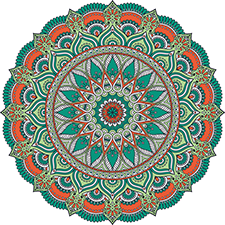Dysthymic Disorder
San Jose Counseling and Psychotherapy
 Dysthymic Disorder is a type of moderate depression that can be persistent and lingering.
Dysthymic Disorder is a type of moderate depression that can be persistent and lingering.
Because depression is an umbrella term that encompasses many different forms of an emotional disorder, understanding the different types of depression is important in order to determine an appropriate depression counseling plan.
Dysthymic disorder, also known as dysthymia, is a chronic form of depression.
It starts at an early age and persists through life. For a diagnosis of dysthymia to be made, someone would have chronic mild to moderate depression symptoms for a period of 2 years or more.
Dysthymic disorder affects approximately 1.5 percent of the U.S. population age 18 and older. This translates to about 3.3 million American adults.
Dysthymia can sometimes be difficult to spot because people with it have been mildly depressed their whole lives. Both the sufferer and those around them lack the baseline of a better mood to compare the depression to.
Whereas dysthymia is chronic, milder, and usually has an early onset, major depressive disorder is more severe, episodic and may begin later in life. Even if a depression seems mild, it’s important to get help as soon as possible because chronic mild depression can lead to more severe depression.
Symptoms of Dysthymic Disorder
 The symptoms of dysthymic disorder can be much subtler than other mood disorders such as major depression and bipolar disorder. In fact, many people suffering with dysthymic disorder through childhood and adolescence without realizing it. They often think that what they are feeling is normal.
The symptoms of dysthymic disorder can be much subtler than other mood disorders such as major depression and bipolar disorder. In fact, many people suffering with dysthymic disorder through childhood and adolescence without realizing it. They often think that what they are feeling is normal.
In addition to chronic low moods, common symptoms of this mood disorder include:
- Feelings of hopelessness or helplessness
- Trouble sleeping or daytime sleepiness
- Loss of interest in daily activities
- Sadness or feeling down
- Feelings of hopelessness
The most common symptom of dysthymia seen in depression counseling are feeling sad or unhappy most of the time. The person may have little or no joy in daily activities which use to have meaning for them.
Psychotherapy for Dysthymic Disorder
Because dysthymic disorder does not require antidepressant medications as frequently as major depression, psychotherapy and depression treatment are the treatments of choice.
It is typically recommended that someone with any type of depression always have psychotherapy, whether taking medication or not because of the persistent nature of dysthymia.
Therapy and counseling will usually involve a number of different approaches, such as Cognitive Behavioral, Psychodynamic, and Solution-Focused. As a therapist experienced in treating this type of depression, I focus on helping my client to feel better as quickly as possible in a safe and supportive environment.

Depression Counseling and Therapy for the Silicon Valley including San Jose, Los Gatos, Saratoga, Sunnyvale, Campbell, Cupertino, Los Altos, Mountain View, and Santa Clara.

